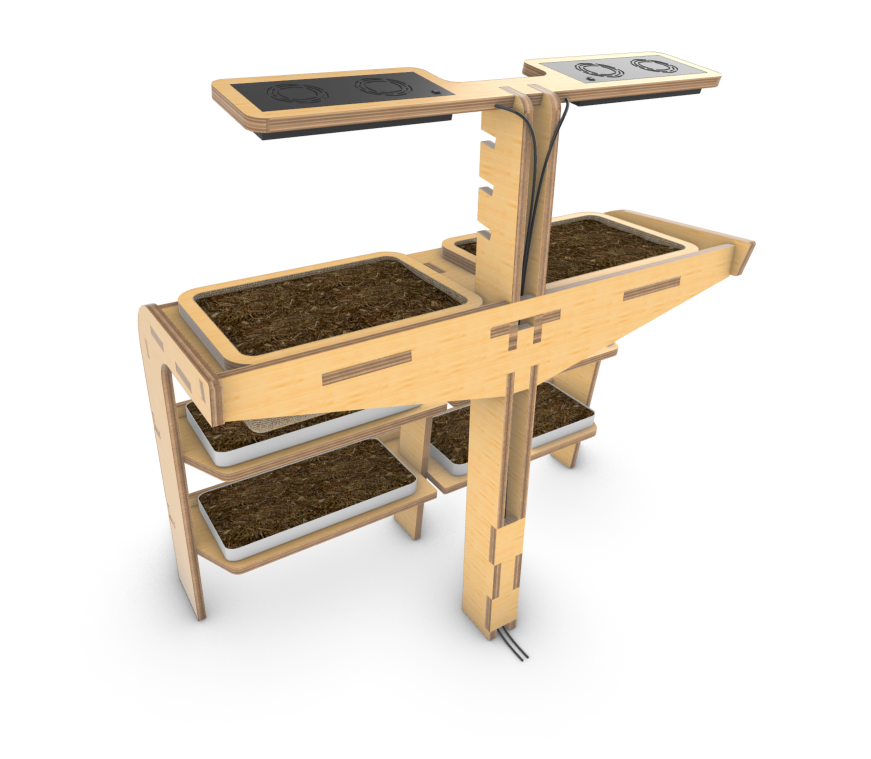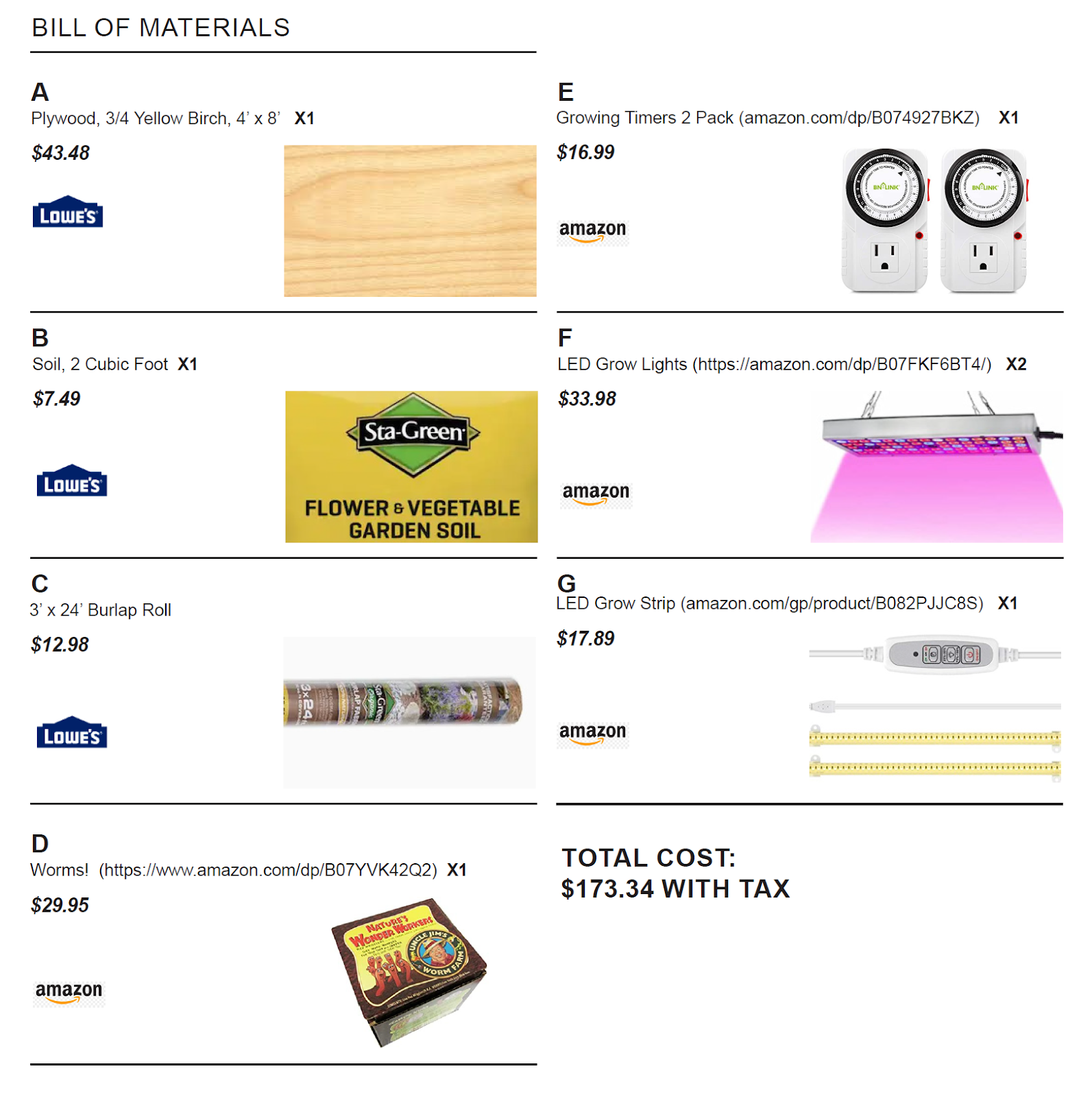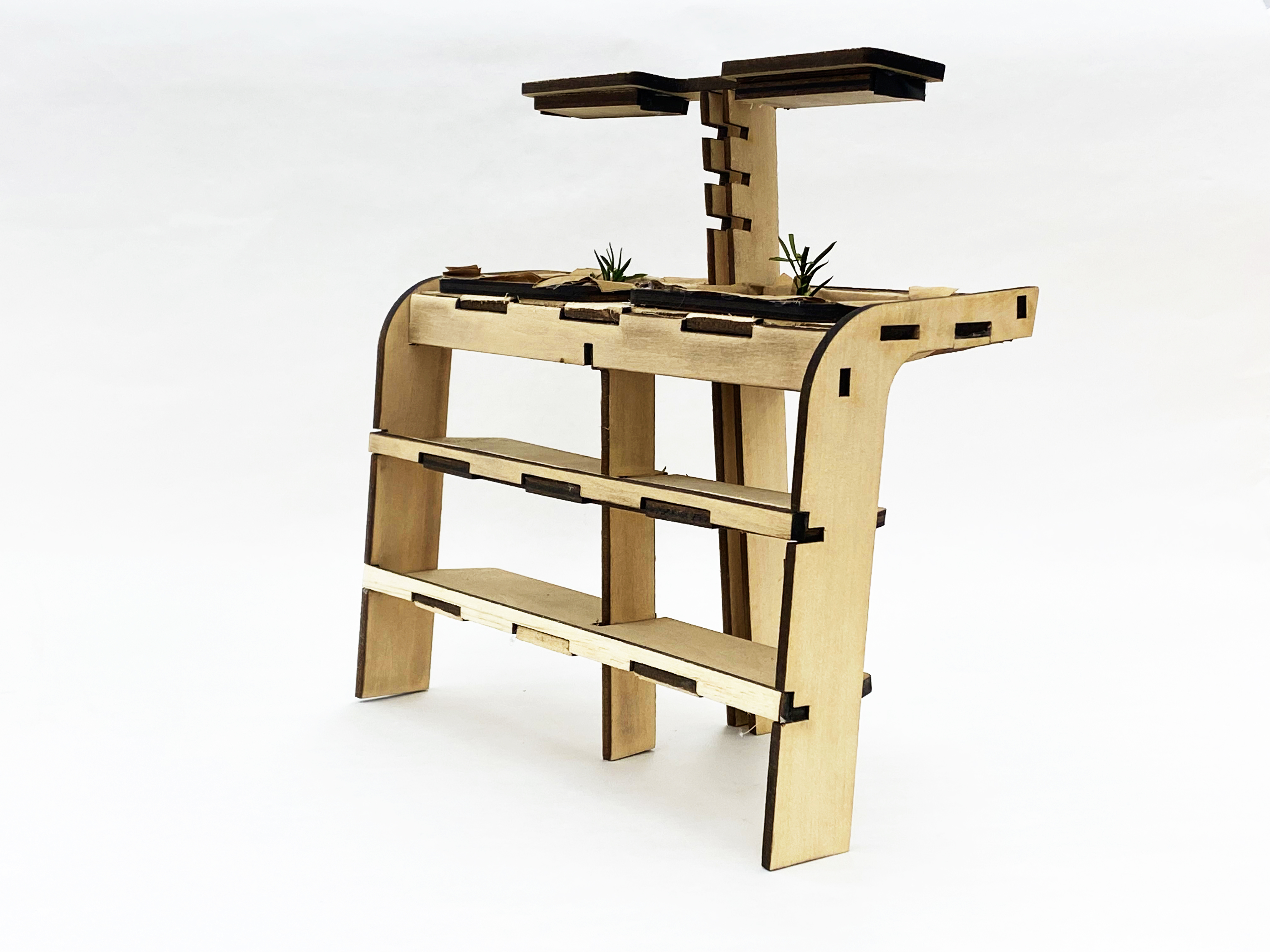EverGreen Grow Kit
Food insecurity is a global issue that often requires local intervention. The United States Department of Agriculture (USDA) estimates that 17.4 million U.S. households face food insecurity in any given year. While food insecurity does not necessarily cause hunger, it is often the outcome. During the pandemic, 25.2 % households in the state of Rhode Island experienced some form of food insecurity, the highest level recorded in the last 20 years.
With my colleagues Raghav Rmadya, Mark Araujo, I explored how we could utilize newly cost-effective LED indoor growing technologies and various gardening techniques to help ease food insecurity in Providence, RI.
We identified organizations that grow produce year-round and donate to homeless shelters and food banks. We then identified the November – March gap in their production, and zoomed in to see if we could somehow continue their growing cycle and thereby donations within this gap.

Valuable perspective was gained through many interviews within and outside our own networks, as well as with local subject-matter experts. We also learned from Rob Elliot, cofounder of Brooklyn-based UrbanLeaf. From these interviews, we identified that our intervention must:
Be easy to assemble, affordable, accessible, adaptable and clean
Grow culturally-accepted and nutritious foods
Continue the growing cycle of community gardens throughout the winter with a similar yield.
Through iterative ideation, we ultimately chose to pursue a large grow-unit that is meant for use in public spaces and community centers. It would incorporate environmentally-friendly materials, with a plywood structure, burlap growing substrates, and LED grow lights to ensure quick growth.
Stakeholder Presentation:
Our solution, dubbed the “EverGreen”, is a modular indoor gardening kit designed for community centers and gardens to support their food donation efforts by allowing them to adapt their operations during the winter months and support remote training for volunteers year-round. A single EverGreen kit can grow five gallons each of tomatoes, kale, micro-greens, herbs and can be delivered as a ready-to-assemble flat-pack kit, milled from a single sheet of plywood, and would cost under $175 for materials.
A no-till growing process would ensure minimal upkeep, and the burlap substrates would induce air-pruning of plant roots to prevent over-use of resources by any single plant. The EverGreen’s simple, friction-fit assembly requires no tools to set up, which can be accomplished in half an hour by an inexperienced builder. These innovations offer both users and those in need fresh produce during the winter.
The EverGreen also encourages the following social innovations:
- Cooking classes
- Healthy eating workshops
- Recipe sharing
- Food pantry & markets
- School kits
- Community engagement
- Cultural exchanges
- Self-sustenance


















